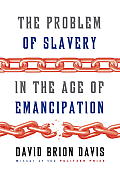NPR has a short piece on Greg Grandin's The Empire of Necessity: Slavery, Freedom and Deception in the New World (Holt). The Washington Post also reviews the book, here.
 H-Net has lots of new reviews for us this week. First, there is a review of the edited volume, Opening Statements: Law, Jurisprudence, and the Legacy of Dutch New York (SUNY Press).
H-Net has lots of new reviews for us this week. First, there is a review of the edited volume, Opening Statements: Law, Jurisprudence, and the Legacy of Dutch New York (SUNY Press)."How much of the credit should the Dutch of New Netherland share for shaping subsequent American institutions? If scholars have underestimated the Dutch legacy, legal history may provide a useful corrective because of the paper trail and precedents that law generates. Set in their cultural and material milieu, subtle legal doctrines might even be a vehicle for broader historical understanding. That is certainly the case in this relatively brief, beautifully designed volume. Thirteen essays and dozens of vivid illustrations reanimate a lost world that will stir the imagination of early Americanists and New York history buffs, while inviting those interested in the legal history of freedom of religion, arbitration, the right of petition, republican sovereignty, and multiculturalism to undertake their own fresh investigations of Dutch New York."Gordon Baker's Fugitive Slaves and the Unfinished American Revolution: Eight Cases, 1848-1856 (McFarland) has also been reviewed. As has The Good Neighbor: Franklin D. Roosevelt and the Rhetoric of American Power (Michigan State Univ. Press) by Mary E. Stuckey (here). Others include a review of Kevin Doughterty's The United States Military in Limited War: Case Studies in Success and Failure, 1945-1999 (McFarland), and a review of James C. Knarr's Uruguay and the United States, 1903-1929: Diplomacy in the Progressive Era (Kent State University Press).
There is also a review of American Epic: Reading the U.S. Constitution (Oxford University Press) by Garrett Epps.
The New York Review of Books reviews Doris Goodwin's Theodore Roosevelt, William Howard Taft, and the Golden Age of Journalism (Simon and Schuster), and also has a review of Ira Stoll's JFK, Conservative (Harcourt)."American Epic is an immensely informative and useful volume. I can sympathize with one of the lamentations that spurred Professor Epps to write this book. When asked to “read the Constitution from start to finish,” even the most diligent and enthusiastic undergraduate will--like his law students--probably “quickly skim its 7,500 words” (or at least the parts they find least interesting). They will “then arrive in class, expecting that I will now tell them what it means” (p. x). If, however, they can be convinced to read Epps’s book, they will be better equipped to understand the strengths and weaknesses of the arguments that others make when they feel the urge to say that they know “what it means.”"
Jonathan Yardley reviews Where the Negroes Are Masters: An African Port in the Era of the Slave Trade (Harvard University Press) by Randy J. Sparks.
"Harvard University Press clearly is offering “Where the Negroes Are Masters” to the trade as opposed to an academic readership, but it could have bent over a bit more to help out the general reader. The apparent assumption that the Fante are common knowledge is incorrect; they should have been explained more clearly than they ever are. There is some unnecessary and irritating repetition: The tale of an African “prince” with which the book opens is repeated, almost verbatim, later on, and “country marriage” is defined twice, again almost verbatim. More careful editing could and should have corrected these shortcomings in what is otherwise an interesting and important book."Also on the Washington Post is a review of Jeffrey Frank's Ike and Dick: Portrait of a Strange Political Marriage (Simon & Schuster).
 For The Nation, Eric Foner reviews The Problem of Slavery in the Age of Emancipation (Knopf) by David Brion Davis. He finds that
For The Nation, Eric Foner reviews The Problem of Slavery in the Age of Emancipation (Knopf) by David Brion Davis. He finds that"The Problem of Slavery in the Age of Emancipation is considerably less comprehensive than its earlier companions. A “highly selective study,” as Davis describes it, the book focuses almost exclusively on the United States and Great Britain. ... Rather than a full history of abolition in the nineteenth century, Davis offers a set of erudite ruminations on questions central to the debate over slavery."The New York Times reviews Betty Medsger's The Burglary: The Discovery of J. Edgar Hoover's Secret FBI (Knopf). The NYT also has a piece looking at three "Books About Builders, Bootleggers and Bosses" in which the writer directs us to "Forget the Chris Christie saga. Between seasons of “Boardwalk Empire,” readers can catch up on the history of New Jersey politics with Steven Hart’s American Dictators: Frank Hague, Nucky Johnson and the Perfection of the Urban Political Machine (Rutgers University Press)."
